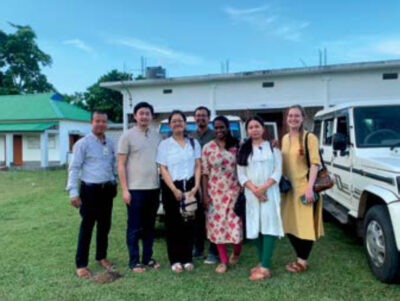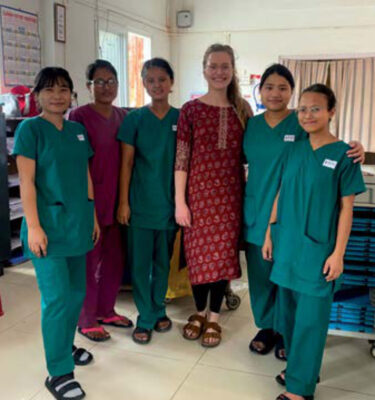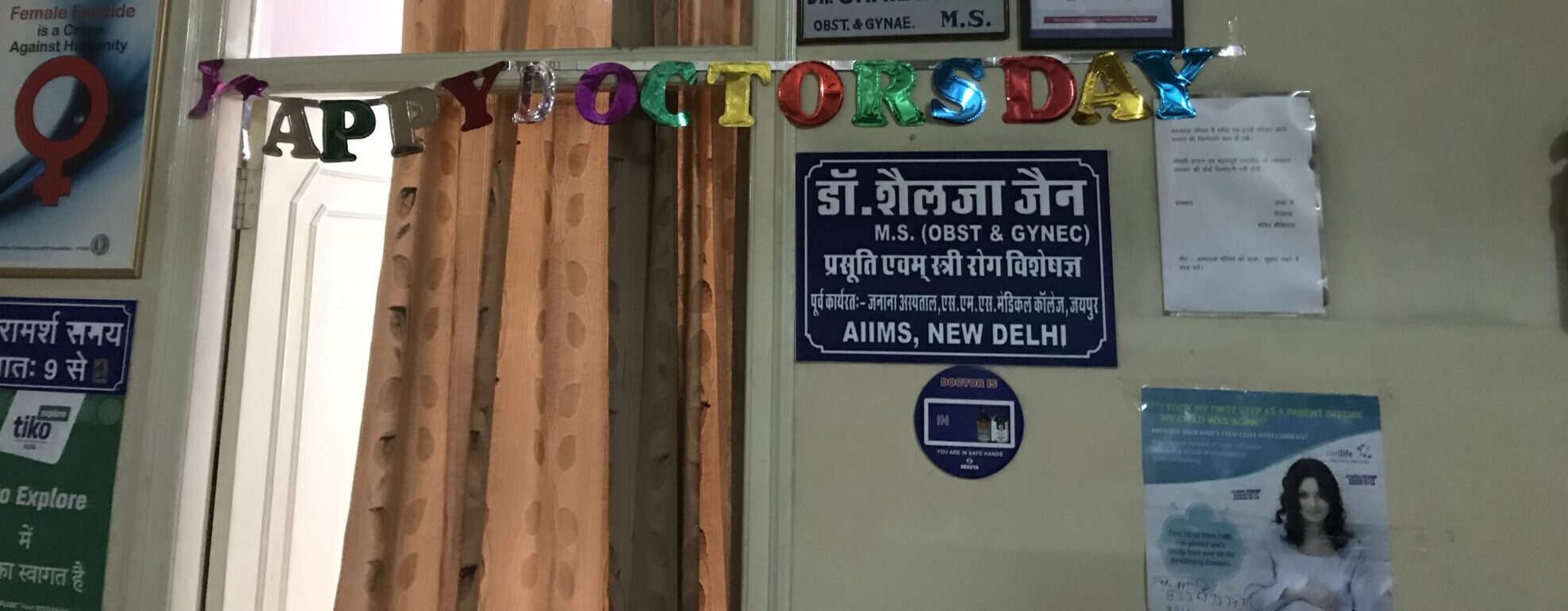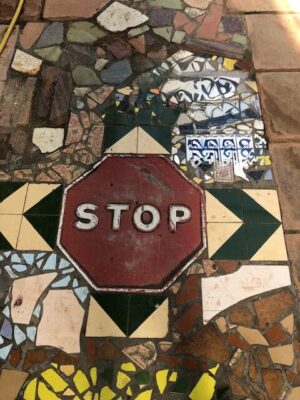Main content
If asked what has been the most valuable asset from my clinical experiences in a rural Indian hospital, I unequivocally state: my Indian colleagues. I say this with conviction because of all the lessons I learned from them, knowledge I did not know I would need.
In January 2023, I joined the clinical workforce of Makunda Christian Leprosy and General Hospital. This position was part of my postgraduate specialisation as MD Global Health and Tropical Medicine. Makunda Hospital is located in a remote region of North-East India, Assam, in the district Karimganj, which borders the states Tripura and Mizoram. In this North-East region, most people rely on farming or working at the large neighbouring tea estates for their income. The economy is precarious, resulting in high levels of general impoverishment and gaps in health care coverage.
Makunda Hospital was established to address this gap. The hospital is a charitable mission hospital that provides 24/7 secondary level care. Its mission is to provide high-quality specialised care which is affordable for all. If a patient is not able to afford the hospital bill, Makunda analyses the patient’s financial situation and can subsequently provide financial assistance by postponing payment or via charity from hospital income and church donations.
Makunda has the following departments: obstetrics and gynaecology, paediatrics with a Neonatal Intensive Care Unit (NICU), general medicine with an Intensive Care Unit, surgery (general, orthopaedic and paediatric) and dentistry. The services are supported by a 24/7 functioning pharmacy, laboratory, blood storage centre, and radiology department with a CT-scanner. In daytime, patients can also access the departments of neurophysiology, physiotherapy, optometry, and nutrition.
In my first three months at Makunda Hospital I worked in the department of obstetrics and gynaecology. My second three months were spent in the surgical department. In both departments, inpatient and outpatient consultations were combined with performing surgeries. Additionally, on-call shifts were organised around one doctor holding 24-hour coverage for obstetrics and gynaecology and one doctor for the remaining departments.

During the six months of the internship, my colleagues showed me how to treat and care for patients in Makunda. They shared knowledge about the challenges that I would come to face and showed me how to cope with setbacks. I learned new techniques and tricks for more sustainable use of and ways to save materials during surgery. These were valuable lessons in the economics of surgical care, specifically related to the availability and costs of supplies and medications, and alternatives in case something was out of stock. I learned sustainable ways of waste management-i.e., what was rubbish and what could be reused, like making rubber bands from used gloves to tie surgical equipment together. I was encouraged to be creative and to think of using less expensive materials for high-end purposes if there was need for them, such as combining a Foley catheter and condom instead of using a Bakri balloon during a postpartum haemorrhage, using gloves as drain bags, and building a three-chamber chest tube drainage system from operation theatre suction pots.
I also learned that these solutions reflect something deeper. The people of Makunda Hospital genuinely care for each other. My colleagues at the hospital seemed to work with great motivation so that their patients could receive the best care possible, which also means investing in the wellbeing and knowledge of your colleagues. My colleagues laughed and cried with me, invited me for dinner, or brought me food to the hospital when I was working late. They included me so that I truly felt like a part of their community. By being part of this community, I came to know the social background and the different tribes of my colleagues and of my patients. That way, I learned about the importance of understanding a patient’s background—truly knowing your patients and their environment enables you to provide better patient-centred care.
Caring for people and planet is a subject that is gaining popularity in high-income medical environments. Yet in fact, it is the norm of clinical care in limited resource settings. In Makunda, I saw colleagues providing the highest possible quality of care, while using as little resources as possible. Without initially realising it, I was taught lessons in providing sustainable clinical care. For instance, as I was being lectured by a surgeon in Makunda for using too much gel while performing an ultrasound, I remembered one of my first Dutch lessons in sonography was to always use a lot of gel, to prevent running out over the course of the examination. I recall how Dutch consultants warned me that when I would be working abroad in the future, I would have to be more economical with using sutures and other materials due to the shortages there.
The difference in usage and waste in the medical sector in higher-resource settings and those less wealthy is vast. Could this be rooted in an assumption that in settings where everything is available, there is no need to be careful with what and how much we use? What would happen if we did care as much about these costs and the impact of our waste on our local ecology and economy?
Caring for people and planet is a subject that is gaining popularity in high-income medical environments. Yet in fact, it is the norm of clinical care in limited resource settings. In Makunda, I saw colleagues providing the highest possible quality of care, while using as little resources as possible.
Ultimately, I am grateful to my colleagues at Makunda for how they guided me in caring for patients in a holistic way and how their practices helped me reevaluate the processes of providing medical care. I have experienced the development of becoming critically aware in practising medicine when the need arises. As the planetary crisis unfolds itself, I wish that we, in practising medicine in the Netherlands, will be able to finally reduce our waste and footprint, while still being able to provide high-quality care. I want to encourage everyone to be open and allow themselves to draw inspiration from colleagues working in environments with shortages. Their deeper understanding of caring for the world and its people, and their expertise and efficiency in working economically and sustainably, can guide us where we need to go.




















































